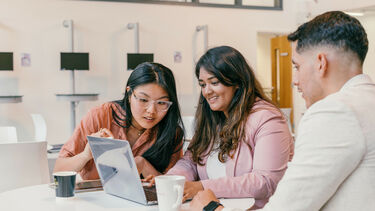My experience as a Policy Analyst at the 2018 G20 Summit

As part of the ‘Global Leadership Initiative’, students from the Faculty of Social Sciences are eligible to apply for the opportunity to attend the annual G20 summit to write, report and reflect upon the policy discussions that take place. All the preparation, travelling and late nights culminate in the Global Policy Journal publishing blog posts and policy briefs on the most pressing issues discussed at the summit.
Such an opportunity is difficult to summarise in a single blog post, but I will do my best. For me, after being selected, briefed and doing as much prep work as my timetable allowed, it was time to travel 7,000 miles to Buenos Aries, Argentina. I was there, along with seven other students and two Lecturers, to report on the discussions and decisions of some of the most important world leaders. It was an utterly exciting, if completely daunting, task.
It’s difficult to describe the International Media Centre (IMC), with all its shiny lights, bewildered journalists and constant supply of caffeine, but it is where all the work happens. There are rows and rows of tables and chairs, with eager journalists tapping away at their keyboards. You can feel the atmosphere in the room change as developments occur: Donald Trump arriving, Merkel’s plane having to turn around, rumours of tension between the leaders. There’s also a healthy supply of food (and wine) on hand most hours of the day.
As part of this experience, your status as a student at the University of Sheffield is usurped; you become a Policy Analyst for the Global Policy Journal – and you even get the business cards to prove it. The opportunities this new status and your place in the IMC present are endless: you can meet world class journalists (we were fortunate enough to bump into Laura Kuenssberg and Robert Peston); give your opinions live on TV; be in the front row while world leaders give their press releases; write about key policy issues and find yourself endlessly embroiled in twitter conversations. Being at the G20 is definitely work – the late nights and sore typing fingers are evidence of that – but it is the kind of work you’ll be happy to talk about for years to come.
Opportunities like this don’t come around all that frequently. Despite a week of poor sleep, early mornings and endless typing, it is an experience I wouldn’t change for the world.
Eleanor Harris
But it isn’t just the opportunities of the IMC that I remember, it is also the opportunity to spend time with intelligent and like-minded people. As a group of students and lecturers, you work collaboratively towards your writing goal of one blog post and one policy brief each. To achieve this, you support each other. As you edit each other’s blogs and policy briefs, you are exposed to new ideas and concepts. You challenge each other over dinner and make suggestions for improvements. Not only is this experience hugely academically rewarding (writing 2,000 words jet-lagged is, after all, no easy feat), but it is also an opportunity to expand your other skills: public speaking, proof reading and social skills.
Opportunities like this don’t come around all that frequently. Despite a week of poor sleep, early mornings and endless typing, it is an experience I wouldn’t change for the world.

International postgraduate taught scholarships
We offer a generous package of financial support for international postgraduate taught students, including scholarships worth £10,000 towards the original tuition fee.
Applications are open for existing offer holders for a postgraduate taught programme starting in September 2025.
